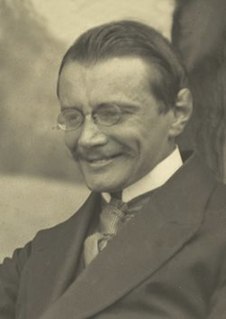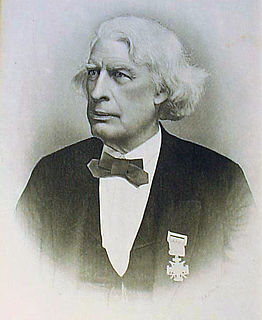A Quote by Bill Vaughan
There is that in the soul of man which must respond to the highest in virtue. It may not respond at once. Human nature can easily be over-faced by examples too remote and austere. Moreover, human nature can easily deny God because the whole race has long been in rebellion against Him. Yet there is that in human nature which calls out to the supreme examples of virtue: owns, as it were, the intention of God who made it, and feels the unmistakable homesickness of the soul.
Related Quotes
At this day . . . the earth sustains on her bosom many monster minds, minds which are not afraid to employ the seed of Deity deposited in human nature as a means of suppressing the name of God. Can anything be more detestable than this madness in man, who, finding God a hundred times both in his body and his soul, makes his excellence in this respect a pretext for denying that there is a God? He will not say that chance has made him different from the brutes; . . . but, substituting Nature as the architect of the universe, he suppresses the name of God.
God, Who is by nature good and dispassionate, loves all men equally as His handiwork. But He glorifies the virtuous man because in his will he is united to God. At the same time, in His goodness he is merciful to the sinner and by chastising him in this life brings him back to the path of virtue. Similarly, a man of good and dispassionate judgment also loves all men equally. He loves the virtuous man because of his nature and the probity of his intention; and he loves the sinner, too, because of his nature and because in his compassion he pities him for foolishly stumbling in darkness.
Human nature itself is evermore an advocate for liberty. There is also in human nature a resentment of injury, and indignation against wrong. A love of truth and a veneration of virtue. These amiable passions, are the "latent spark" . . . If the people are capable of understanding, seeing and feeling the differences between true and false, right and wrong, virtue and vice, to what better principle can the friends of mankind apply than to the sense of this difference?
The centre of the soul is God; and, when the soul has attained to Him according to the whole capacity of its being, which is the strength and virtue of the soul, it will have reached the last and the deep centre of the soul, which will be when with all its powers it loves and understands and enjoys God.
There is a historic strain of dominion theology which says, taking its references from the Psalms, that man is made just a little lower than God, and that we are the crown of creation. That interpretation has come at the expense of the one that says when God, in the story of Noah, intervened to save human life against the flood, against the acts of nature, He did not stop with human beings. He made sure that every kind of animal was represented twice on that ark.
Understanding human nature must be the basis of any real improvement in human life. Science has done wonders in mastering the laws of the physical world, but our own nature is much less understood, as yet, than the nature of stars and electrons. When science learns to understand human nature, it will be able to bring a happiness into our lives which machines and the physical sciences have failed to create.
Again, if the world is destroyed, it must needs either be destroyed according to nature or against nature. Against nature is impossible, for that which is against nature is not stronger than nature. If according to nature, there must be another nature which changes the nature of the world: which does not appear.
The traditional doctrine of man and not the measurement of skulls and footprints is the key for the understanding of that anthropos who, despite the rebellion of Promethean man against Heaven from the period of Renaissance and its aftermath, is still the inner man of every man, the reality which no human being can deny wherever and whenever he lives, the imprint of a theomorphic nature which no historical change and transformation can erase completely from the face of that creature called man.

































